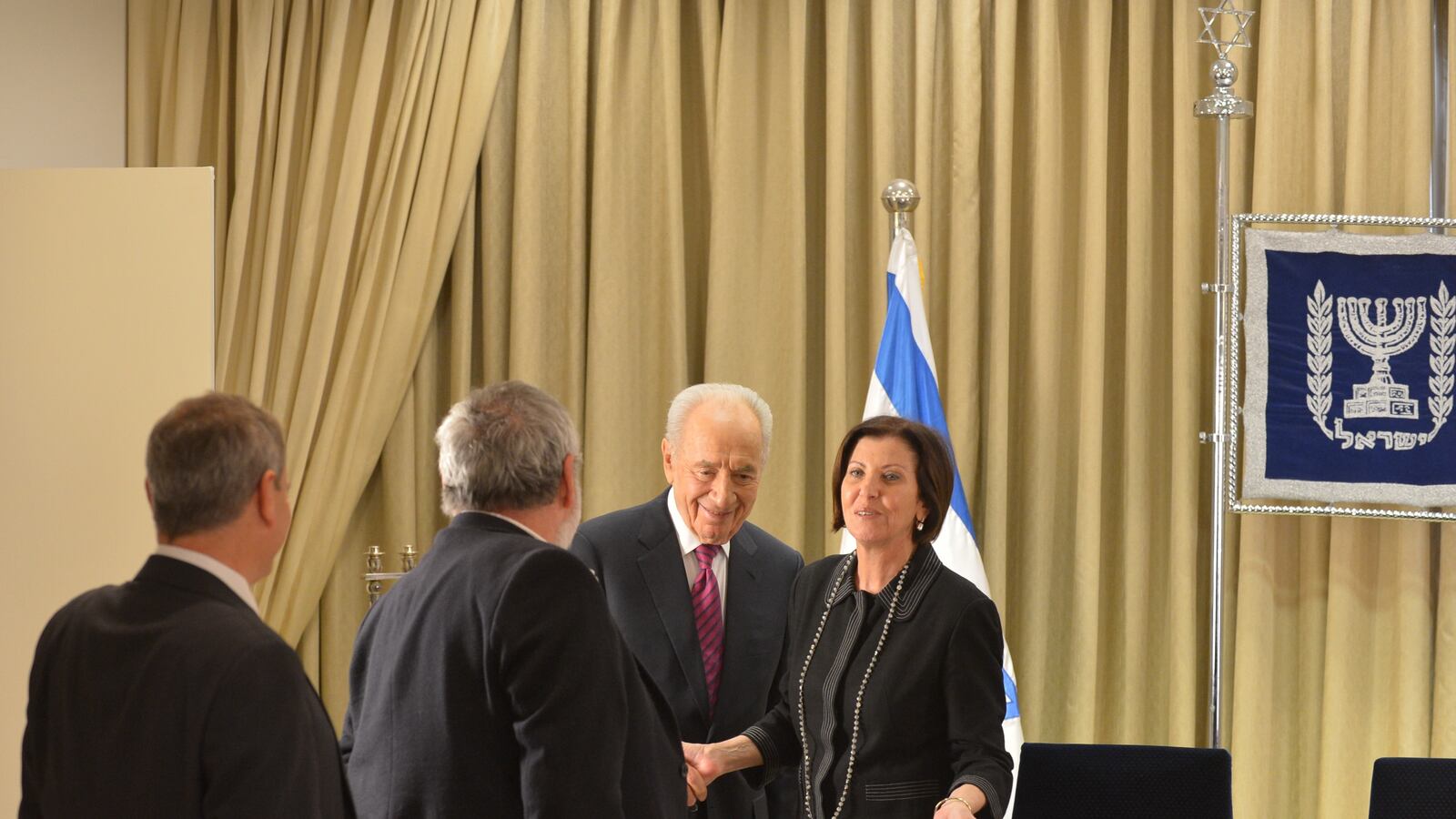As of tomorrow, exactly 20 years will have passed since Israel presented its formal written draft of the Declaration of Principles, also known as the Oslo I Accord. So it’s natural that, at this moment, many exasperated observers of the Israeli-Palestinian logjam find themselves wondering what happened to the rousing Israeli left of the 1990s—the movement that authored the Oslo peace plan and led the nation towards historic agreements with its Arab neighbors.To understand the reigning disaffection among onetime voters of the Israeli left, these observers should turn their attention to a small, overlooked scandal now unfolding in Jerusalem.

In late May, Meretz, the left-wing party and a beacon of democratic values and egalitarianism, held primary elections to prepare for October's mayoral races. In Jerusalem, an iconoclastic candidate—not a favorite of the national leadership—won, unseating the man who has held the top position for 15 years. In the number three spot on the list, a resident of East Jerusalem became the first serious Arab contender for a seat on Jerusalem's city council since 1967.
Then, following a complaint by a disappointed candidate who did not make the list, Meretz's leadership—the national operators who meet in closed chambers in Tel Aviv—held an Elections Committee meeting and annulled the results of the election, by decree.
The reasons behind the complaint ranged from a mind-boggling, post-factum, retroactive change in the rules for inscribing new party members to the naked accusation that new Arab voters from East Jerusalem had skewed the election. Another objection raised was that a number of new party members had paid their dues in cash. The written decision justifying the cancellation of the results stated that unspecified "serious irregularities" had occurred during the first half hour of primary voting.
No, replacement elections will not take place. Zehava Galon, the party chairwoman, has called for a meeting of Meretz's "Ruling Committee" (yes, such Soviet-style denominations still exist) next Sunday, to determine the party's list in Jerusalem.
Why is the internal bickering of the provincial members of a fairly marginal party in Israeli politics such a big deal? Because it’s not only the unpleasant patina of racism glossing this decision that’s so troublesome. The high-handed, outright erasure of primary results exposes the disregard the party's mandarins have for their own voters, who in this case dared to vote for a list of candidates that did not fit the national leaders' mood.
This is not the first time Meretz has shown its true colors. I remember attending a conference at the height of the Second Intifada, when Meretz voters abandoned the party in droves, and observing the party’s then-leader Yossi Beilin evade tough questions and urgently whisper to his assistant, "Find me a way to get out of here." It was impossible not to come to the conclusion that he profoundly misunderstood the nature of the democratic equation. After leading his party to a miserable 5 seats (out of 120) in parliament, he retired.
Since then, Meretz has for years blamed the violence of the Palestinian uprising for its losses at the polls, failing to see that its open disdain towards its own voters is what drives people away.
Last Monday, Yael Dayan, the daughter Israel's storied Gen. Moshe Dayan and Meretz's leader on Tel Aviv's City Council, spoke out about the scandal taking place in the city up the hill. In a letter to the editor of Haaretz, responding to an article headlined "A candidate enrolled East Jerusalem residents and Meretz cancelled the primaries," she blasted her own party. "My impression," she wrote, "is that the party is comprised of men and women who are not interested in Arabs as party members."
She added, "Meretz members also do not seem interested in poor members, because it is prohibited to sign people up who pay only in cash. Thus, Meretz remains a bourgeois, elitist party that talks about equality and peace."
Meretz is not the only Israeli party with problems. The Labor party seems to spit out its leader twice in every election cycle. The Likud displaced its own elected ministerial contenders by fiat when it joined forces with Yisrael Beiteinu, a right-wing upstart.
But there’s a reason we care about Meretz: it’s the only party that once drew millions of Israeli citizens to vote in favor of a risky peace plan by arguing that Zionist values dovetailed with the need for social justice, and made significant sacrifices worthwhile.
Its failings today are much worse than the sorrow felt by once-devoted adherents. Its inability to embody the values it once stood for make the entire case for peace a much harder sell among Israelis—especially now that the optimism of Oslo is 20 years behind us.






